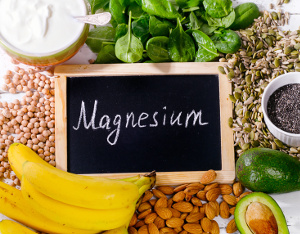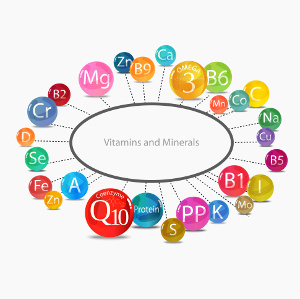afterLoad (456.48KB) (465μs)
afterInitialise (1.28MB) (60.16ms)
afterRoute (827.13KB) (22.19ms)
beforeRenderComponent com_content (35.2KB) (252μs)
Before Access::preloadComponents (all components) (67.27KB) (397μs)
After Access::preloadComponents (all components) (98.07KB) (6.53ms)
Before Access::preloadPermissions (com_content) (1.6KB) (13μs)
After Access::preloadPermissions (com_content) (3.29MB) (28.73ms)
Before Access::getAssetRules (id:62 name:com_content.category.20) (130.65KB) (110μs)
After Access::getAssetRules (id:62 name:com_content.category.20) (7.38KB) (50μs)
Before Access::getAssetRules (id:8 name:com_content) (51.77KB) (69.45ms)
After Access::getAssetRules (id:8 name:com_content) (6.17KB) (29μs)
afterRenderComponent com_content (1.48MB) (220ms)
afterDispatch (32.39KB) (16.85ms)
beforeRenderRawModule mod_articles_category (READ MORE...) (398.66KB) (25.31ms)
afterRenderRawModule mod_articles_category (READ MORE...) (60.82KB) (125ms)
beforeRenderRawModule mod_custom (BOOST YOUR IMMUNE DEFENSE) (6.45KB) (23μs)
afterRenderRawModule mod_custom (BOOST YOUR IMMUNE DEFENSE) (4.42KB) (5.54ms)
beforeRenderRawModule mod_articles_latest (Latest news) (976B) (19μs)
afterRenderRawModule mod_articles_latest (Latest news) (32.48KB) (139ms)
beforeRenderRawModule mod_tags_popular (Search) (2.09KB) (25μs)
afterRenderRawModule mod_tags_popular (Search) (22.45KB) (109ms)
beforeRenderRawModule mod_custom (the Vitamin and Mineral Guide) (960B) (23μs)
afterRenderRawModule mod_custom (the Vitamin and Mineral Guide) (1.02KB) (38μs)
beforeRenderRawModule mod_custom (Weight loss that works) (736B) (11μs)
afterRenderRawModule mod_custom (Weight loss that works) (928B) (20μs)
beforeRenderRawModule mod_custom (Get additionel and more detailed knowledge ) (752B) (9μs)
afterRenderRawModule mod_custom (Get additionel and more detailed knowledge ) (944B) (17μs)
beforeRenderRawModule mod_custom (Q10 goes by many names) (736B) (8μs)
afterRenderRawModule mod_custom (Q10 goes by many names) (928B) (16μs)
beforeRenderRawModule mod_custom (Check this before you buy a Q10 product) (752B) (8μs)
afterRenderRawModule mod_custom (Check this before you buy a Q10 product) (944B) (15μs)
beforeRenderRawModule mod_custom (Are you taking supplements) (736B) (8μs)
afterRenderRawModule mod_custom (Are you taking supplements) (2.28KB) (17μs)
beforeRenderRawModule mod_custom (Antiaging) (720B) (8μs)
afterRenderRawModule mod_custom (Antiaging) (912B) (15μs)
beforeRenderRawModule mod_custom (Exercise) (720B) (8μs)
afterRenderRawModule mod_custom (Exercise) (912B) (15μs)
beforeRenderRawModule mod_custom (Useful Links) (720B) (8μs)
afterRenderRawModule mod_custom (Useful Links) (1.02KB) (16μs)
beforeRenderModule mod_articles_category (READ MORE...) (268.2KB) (8.99ms)
afterRenderModule mod_articles_category (READ MORE...) (1.25KB) (48μs)
beforeRenderModule mod_custom (BOOST YOUR IMMUNE DEFENSE) (6.81KB) (13μs)
afterRenderModule mod_custom (BOOST YOUR IMMUNE DEFENSE) (1.28KB) (24μs)
beforeRenderModule mod_articles_latest (Latest news) (592B) (10μs)
afterRenderModule mod_articles_latest (Latest news) (1.27KB) (19μs)
beforeRenderModule mod_tags_popular (Search) (1.73KB) (10μs)
afterRenderModule mod_tags_popular (Search) (1.27KB) (17μs)
beforeRenderModule mod_custom (the Vitamin and Mineral Guide) (1.31KB) (9μs)
afterRenderModule mod_custom (the Vitamin and Mineral Guide) (1.28KB) (17μs)
beforeRenderModule mod_custom (Weight loss that works) (336B) (8μs)
afterRenderModule mod_custom (Weight loss that works) (1.27KB) (17μs)
beforeRenderModule mod_custom (Get additionel and more detailed knowledge ) (368B) (8μs)
afterRenderModule mod_custom (Get additionel and more detailed knowledge ) (1.3KB) (18μs)
beforeRenderModule mod_custom (Q10 goes by many names) (336B) (8μs)
afterRenderModule mod_custom (Q10 goes by many names) (1.27KB) (17μs)
beforeRenderModule mod_custom (Check this before you buy a Q10 product) (352B) (8μs)
afterRenderModule mod_custom (Check this before you buy a Q10 product) (1.28KB) (17μs)
beforeRenderModule mod_custom (Are you taking supplements) (352B) (8μs)
afterRenderModule mod_custom (Are you taking supplements) (1.28KB) (17μs)
beforeRenderModule mod_custom (Antiaging) (336B) (8μs)
afterRenderModule mod_custom (Antiaging) (1.27KB) (22μs)
beforeRenderModule mod_custom (Exercise) (336B) (10μs)
afterRenderModule mod_custom (Exercise) (1.25KB) (24μs)
beforeRenderModule mod_custom (Useful Links) (336B) (11μs)
afterRenderModule mod_custom (Useful Links) (3.77KB) (5.71ms)
beforeRenderRawModule mod_menu (Main Menu - English) (37.51KB) (698μs)
afterRenderRawModule mod_menu (Main Menu - English) (195.66KB) (5.42ms)
beforeRenderModule mod_menu (Main Menu - English) (720B) (4μs)
afterRenderModule mod_menu (Main Menu - English) (4.86KB) (47μs)
beforeRenderRawModule mod_languages (Sprogskift) (3.94KB) (16μs)
afterRenderRawModule mod_languages (Sprogskift) (21.84KB) (6.58ms)
beforeRenderModule mod_languages (Sprogskift) (720B) (5μs)
afterRenderModule mod_languages (Sprogskift) (5.31KB) (19μs)
beforeRenderRawModule mod_finder () (6.34KB) (10μs)
afterRenderRawModule mod_finder () (128.59KB) (7.74ms)
beforeRenderModule mod_finder () (704B) (4μs)
afterRenderModule mod_finder () (3.29KB) (34μs)
beforeRenderRawModule mod_custom () (6.62KB) (136μs)
afterRenderRawModule mod_custom () (30.89KB) (3.63ms)
beforeRenderModule mod_custom () (704B) (5μs)
afterRenderModule mod_custom () (1.23KB) (45μs)
beforeRenderRawModule mod_menu (Main Menu - English) (5.07KB) (101μs)
afterRenderRawModule mod_menu (Main Menu - English) (6.3KB) (2.02ms)
beforeRenderModule mod_menu (Main Menu - English) (720B) (4μs)
afterRenderModule mod_menu (Main Menu - English) (1.25KB) (46μs)
beforeRenderRawModule mod_languages (Sprogskift Mobil) (912B) (18μs)
afterRenderRawModule mod_languages (Sprogskift Mobil) (3.89KB) (3.94ms)
beforeRenderModule mod_languages (Sprogskift Mobil) (720B) (5μs)
afterRenderModule mod_languages (Sprogskift Mobil) (1.27KB) (32μs)
beforeRenderRawModule mod_finder () (2.3KB) (11μs)
afterRenderRawModule mod_finder () (6.29KB) (2.65ms)
beforeRenderModule mod_finder () (704B) (4μs)
afterRenderModule mod_finder () (1.23KB) (52μs)
beforeRenderRawModule mod_custom () (8.66KB) (174μs)
afterRenderRawModule mod_custom () (904B) (128μs)
beforeRenderModule mod_custom () (704B) (2μs)
afterRenderModule mod_custom () (2.43KB) (24μs)
beforeRenderRawModule mod_custom () (688B) (72μs)
afterRenderRawModule mod_custom () (896B) (84μs)
beforeRenderModule mod_custom () (704B) (2μs)
afterRenderModule mod_custom () (2.71KB) (20μs)
afterRender (304.84KB) (17.02ms)
| 1 x afterRenderComponent com_content (1.48MB) (24.58%) | 220.08ms |
| 1 x afterRenderRawModule mod_articles_latest (Latest news) (32.48KB) (15.55%) | 139.29ms |
| 1 x afterRenderRawModule mod_articles_category (READ MORE...) (60.82KB) (13.91%) | 124.60ms |
| 1 x afterRenderRawModule mod_tags_popular (Search) (22.45KB) (12.16%) | 108.86ms |
| 1 x Before Access::getAssetRules (id:8 name:com_content) (51.77KB) (7.75%) | 69.45ms |
| 1 x afterInitialise (1.28MB) (6.72%) | 60.16ms |
| 1 x After Access::preloadPermissions (com_content) (3.29MB) (3.21%) | 28.73ms |
| 1 x beforeRenderRawModule mod_articles_category (READ MORE...) (398.66KB) (2.83%) | 25.31ms |
| 1 x afterRoute (827.13KB) (2.48%) | 22.19ms |
| 1 x afterRender (304.84KB) (1.9%) | 17.02ms |
| 1 x afterDispatch (32.39KB) (1.88%) | 16.85ms |
| 1 x beforeRenderModule mod_articles_category (READ MORE...) (268.2KB) (1%) | 8.99ms |
| 1 x afterRenderRawModule mod_finder () (128.59KB) (0.86%) | 7.74ms |
| 1 x afterRenderRawModule mod_languages (Sprogskift) (21.84KB) (0.73%) | 6.58ms |
| 1 x After Access::preloadComponents (all components) (98.07KB) (0.73%) | 6.53ms |
| 1 x afterRenderModule mod_custom (Useful Links) (3.77KB) (0.64%) | 5.71ms |
| 1 x afterRenderRawModule mod_custom (BOOST YOUR IMMUNE DEFENSE) (4.42KB) (0.62%) | 5.54ms |
| 1 x afterRenderRawModule mod_menu (Main Menu - English) (195.66KB) (0.61%) | 5.42ms |
| 1 x afterRenderRawModule mod_languages (Sprogskift Mobil) (3.89KB) (0.44%) | 3.94ms |
| 1 x afterRenderRawModule mod_custom () (30.89KB) (0.41%) | 3.63ms |
| 1 x afterRenderRawModule mod_finder () (6.29KB) (0.3%) | 2.65ms |
| 1 x afterRenderRawModule mod_menu (Main Menu - English) (6.3KB) (0.23%) | 2.02ms |
| 1 x beforeRenderRawModule mod_menu (Main Menu - English) (37.51KB) (0.08%) | 698μs |
| 1 x afterLoad (456.48KB) (0.05%) | 465μs |
| 1 x Before Access::preloadComponents (all components) (67.27KB) (0.04%) | 397μs |
| 1 x beforeRenderComponent com_content (35.2KB) (0.03%) | 252μs |
| 1 x beforeRenderRawModule mod_custom () (8.66KB) (0.02%) | 174μs |
| 1 x beforeRenderRawModule mod_custom () (6.62KB) (0.02%) | 136μs |
| 1 x afterRenderRawModule mod_custom () (904B) (0.01%) | 128μs |
| 1 x Before Access::getAssetRules (id:62 name:com_content.category.20) (130.65KB) (0.01%) | 110μs |
| 1 x beforeRenderRawModule mod_menu (Main Menu - English) (5.07KB) (0.01%) | 101μs |
| 1 x afterRenderRawModule mod_custom () (896B) (0.01%) | 84μs |
| 1 x beforeRenderRawModule mod_custom () (688B) (0.01%) | 72μs |
| 1 x afterRenderModule mod_finder () (1.23KB) (0.01%) | 52μs |
| 1 x After Access::getAssetRules (id:62 name:com_content.category.20) (7.38KB) (0.01%) | 50μs |
| 1 x afterRenderModule mod_articles_category (READ MORE...) (1.25KB) (0.01%) | 48μs |
| 1 x afterRenderModule mod_menu (Main Menu - English) (4.86KB) (0.01%) | 47μs |
| 1 x afterRenderModule mod_menu (Main Menu - English) (1.25KB) (0.01%) | 46μs |
| 1 x afterRenderModule mod_custom () (1.23KB) (0.01%) | 45μs |
| 1 x afterRenderRawModule mod_custom (the Vitamin and Mineral Guide) (1.02KB) (0%) | 38μs |
| 1 x afterRenderModule mod_finder () (3.29KB) (0%) | 34μs |
| 1 x afterRenderModule mod_languages (Sprogskift Mobil) (1.27KB) (0%) | 32μs |
| 1 x After Access::getAssetRules (id:8 name:com_content) (6.17KB) (0%) | 29μs |
| 1 x beforeRenderRawModule mod_tags_popular (Search) (2.09KB) (0%) | 25μs |
| 1 x afterRenderModule mod_custom (BOOST YOUR IMMUNE DEFENSE) (1.28KB) (0%) | 24μs |
| 1 x afterRenderModule mod_custom (Exercise) (1.25KB) (0%) | 24μs |
| 1 x afterRenderModule mod_custom () (2.43KB) (0%) | 24μs |
| 1 x beforeRenderRawModule mod_custom (BOOST YOUR IMMUNE DEFENSE) (6.45KB) (0%) | 23μs |
| 1 x beforeRenderRawModule mod_custom (the Vitamin and Mineral Guide) (960B) (0%) | 23μs |
| 1 x afterRenderModule mod_custom (Antiaging) (1.27KB) (0%) | 22μs |
| 1 x afterRenderRawModule mod_custom (Weight loss that works) (928B) (0%) | 20μs |
| 1 x afterRenderModule mod_custom () (2.71KB) (0%) | 20μs |
| 1 x beforeRenderRawModule mod_articles_latest (Latest news) (976B) (0%) | 19μs |
| 1 x afterRenderModule mod_articles_latest (Latest news) (1.27KB) (0%) | 19μs |
| 1 x afterRenderModule mod_languages (Sprogskift) (5.31KB) (0%) | 19μs |
| 1 x afterRenderModule mod_custom (Get additionel and more detailed knowledge ) (1.3KB) (0%) | 18μs |
| 1 x beforeRenderRawModule mod_languages (Sprogskift Mobil) (912B) (0%) | 18μs |
| 1 x afterRenderRawModule mod_custom (Get additionel and more detailed knowledge ) (944B) (0%) | 17μs |
| 1 x afterRenderRawModule mod_custom (Are you taking supplements) (2.28KB) (0%) | 17μs |
| 1 x afterRenderModule mod_custom (Check this before you buy a Q10 product) (1.28KB) (0%) | 17μs |
| 1 x afterRenderModule mod_custom (Are you taking supplements) (1.28KB) (0%) | 17μs |
| 1 x afterRenderModule mod_tags_popular (Search) (1.27KB) (0%) | 17μs |
| 1 x afterRenderModule mod_custom (the Vitamin and Mineral Guide) (1.28KB) (0%) | 17μs |
| 1 x afterRenderModule mod_custom (Weight loss that works) (1.27KB) (0%) | 17μs |
| 1 x afterRenderModule mod_custom (Q10 goes by many names) (1.27KB) (0%) | 17μs |
| 1 x beforeRenderRawModule mod_languages (Sprogskift) (3.94KB) (0%) | 16μs |
| 1 x afterRenderRawModule mod_custom (Q10 goes by many names) (928B) (0%) | 16μs |
| 1 x afterRenderRawModule mod_custom (Useful Links) (1.02KB) (0%) | 16μs |
| 1 x afterRenderRawModule mod_custom (Check this before you buy a Q10 product) (944B) (0%) | 15μs |
| 1 x afterRenderRawModule mod_custom (Antiaging) (912B) (0%) | 15μs |
| 1 x afterRenderRawModule mod_custom (Exercise) (912B) (0%) | 15μs |
| 1 x Before Access::preloadPermissions (com_content) (1.6KB) (0%) | 13μs |
| 1 x beforeRenderModule mod_custom (BOOST YOUR IMMUNE DEFENSE) (6.81KB) (0%) | 13μs |
| 1 x beforeRenderRawModule mod_custom (Weight loss that works) (736B) (0%) | 11μs |
| 1 x beforeRenderModule mod_custom (Useful Links) (336B) (0%) | 11μs |
| 1 x beforeRenderRawModule mod_finder () (2.3KB) (0%) | 11μs |
| 1 x beforeRenderModule mod_articles_latest (Latest news) (592B) (0%) | 10μs |
| 1 x beforeRenderModule mod_tags_popular (Search) (1.73KB) (0%) | 10μs |
| 1 x beforeRenderModule mod_custom (Exercise) (336B) (0%) | 10μs |
| 1 x beforeRenderRawModule mod_finder () (6.34KB) (0%) | 10μs |
| 1 x beforeRenderModule mod_custom (the Vitamin and Mineral Guide) (1.31KB) (0%) | 9μs |
| 3 x beforeRenderModule mod_custom () (704B) (0%) | 9μs |
| 1 x beforeRenderRawModule mod_custom (Get additionel and more detailed knowledge ) (752B) (0%) | 9μs |
| 1 x beforeRenderRawModule mod_custom (Check this before you buy a Q10 product) (752B) (0%) | 8μs |
| 1 x beforeRenderRawModule mod_custom (Exercise) (720B) (0%) | 8μs |
| 1 x beforeRenderModule mod_custom (Weight loss that works) (336B) (0%) | 8μs |
| 1 x beforeRenderModule mod_custom (Q10 goes by many names) (336B) (0%) | 8μs |
| 1 x beforeRenderRawModule mod_custom (Q10 goes by many names) (736B) (0%) | 8μs |
| 1 x beforeRenderRawModule mod_custom (Are you taking supplements) (736B) (0%) | 8μs |
| 1 x beforeRenderRawModule mod_custom (Antiaging) (720B) (0%) | 8μs |
| 1 x beforeRenderRawModule mod_custom (Useful Links) (720B) (0%) | 8μs |
| 1 x beforeRenderModule mod_custom (Get additionel and more detailed knowledge ) (368B) (0%) | 8μs |
| 1 x beforeRenderModule mod_custom (Check this before you buy a Q10 product) (352B) (0%) | 8μs |
| 1 x beforeRenderModule mod_custom (Are you taking supplements) (352B) (0%) | 8μs |
| 1 x beforeRenderModule mod_custom (Antiaging) (336B) (0%) | 8μs |
| 2 x beforeRenderModule mod_menu (Main Menu - English) (720B) (0%) | 8μs |
| 2 x beforeRenderModule mod_finder () (704B) (0%) | 8μs |
| 1 x beforeRenderModule mod_languages (Sprogskift) (720B) (0%) | 5μs |
| 1 x beforeRenderModule mod_languages (Sprogskift Mobil) (720B) (0%) | 5μs |
 During pregnancy, vitamin D plays an important role in the bone development of the unborn child, in the brain, and in other functions. Maternal lack of vitamin D during pregnancy may therefore have serious consequences for the fetus and its development. This also goes for the development of neurons in the dopamine-producing area of the brain, which can most likely result in dysfunctions of the dopamine balance, a problem that is seen in young individuals and adults with schizophrenia. This was demonstrated in a new study that is published in Journal of Neurochemistry. The study supports an earlier review article where it was seen that early stages of psychotic disorders like schizophrenia are linked to severe deficiencies of vitamin D and other nutrients with vital importance to brain health, especially during pregnancy.
During pregnancy, vitamin D plays an important role in the bone development of the unborn child, in the brain, and in other functions. Maternal lack of vitamin D during pregnancy may therefore have serious consequences for the fetus and its development. This also goes for the development of neurons in the dopamine-producing area of the brain, which can most likely result in dysfunctions of the dopamine balance, a problem that is seen in young individuals and adults with schizophrenia. This was demonstrated in a new study that is published in Journal of Neurochemistry. The study supports an earlier review article where it was seen that early stages of psychotic disorders like schizophrenia are linked to severe deficiencies of vitamin D and other nutrients with vital importance to brain health, especially during pregnancy.







 The number of older people is on the rise, and so is the number of people who suffer from dementia and die as a result of this condition. If you increase your dietary intake of
The number of older people is on the rise, and so is the number of people who suffer from dementia and die as a result of this condition. If you increase your dietary intake of  It is both healthy and life-extending to get plenty of summer sun, which is our main source of
It is both healthy and life-extending to get plenty of summer sun, which is our main source of  Telomeres are protective caps at the end of our DNA strands. You can compare them to the small plastic aglets that prevent shoelaces from unraveling. For each time a cell divides, the telomeres become shorter. The length of telomeres conveniently indicates our biological age. Diet plays a role and according to a large population study, vitamin C intake is linked to telomere length. The same is the case with Q10 and selenium, according to Swedish research. Vitamin C, Q10, and selenium serve as unique antioxidants that protect the telomeres and the cells against damage caused by oxidative stress.
Telomeres are protective caps at the end of our DNA strands. You can compare them to the small plastic aglets that prevent shoelaces from unraveling. For each time a cell divides, the telomeres become shorter. The length of telomeres conveniently indicates our biological age. Diet plays a role and according to a large population study, vitamin C intake is linked to telomere length. The same is the case with Q10 and selenium, according to Swedish research. Vitamin C, Q10, and selenium serve as unique antioxidants that protect the telomeres and the cells against damage caused by oxidative stress. Everyone is affected by electromagnetic radiation from cell phones, device screens, the electricity supply and other electric systems. The brain’s neurons are particularly vulnerable, especially because electromagnetic radiation can increase the neuronal uptake of calcium ions, which makes the neurons overactive and may even cause them to perish. A study published in News Medical Life Sciences shows that too much calcium in the brain increases the risk of Alzheimer’s disease and digital dementia in young individuals. The increased electromagnetic radiation also generates loads of free radicals in the body that can cause oxidative stress and cellular damage because it outperforms the body’s different antioxidants. This was described in an article published in The Journal of Microscopy & Ultrastructure that also mentions how electromagnetic radiation can cause stress, headaches, fatigue, anxiety, and other symptoms.
Everyone is affected by electromagnetic radiation from cell phones, device screens, the electricity supply and other electric systems. The brain’s neurons are particularly vulnerable, especially because electromagnetic radiation can increase the neuronal uptake of calcium ions, which makes the neurons overactive and may even cause them to perish. A study published in News Medical Life Sciences shows that too much calcium in the brain increases the risk of Alzheimer’s disease and digital dementia in young individuals. The increased electromagnetic radiation also generates loads of free radicals in the body that can cause oxidative stress and cellular damage because it outperforms the body’s different antioxidants. This was described in an article published in The Journal of Microscopy & Ultrastructure that also mentions how electromagnetic radiation can cause stress, headaches, fatigue, anxiety, and other symptoms. There seems to be a relation between ageing, Alzheimer’s disease, and the widespread problems with selenium deficiency. According to a new study that is published in Antioxidants, scientist have revealed how different selenium-containing proteins can affect pathological processes in the brain that are known to cause Alzheimer’s disease. They believe
There seems to be a relation between ageing, Alzheimer’s disease, and the widespread problems with selenium deficiency. According to a new study that is published in Antioxidants, scientist have revealed how different selenium-containing proteins can affect pathological processes in the brain that are known to cause Alzheimer’s disease. They believe  It is commonly known that oily fish and fish oil supplements contain the two omega-3 fatty acids EPA and DHA that are good for the brain. Now, scientists from Singapore have discovered a special omega-3 fatty acid that is of particular importance to brain cells that are surrounded by a protective myeline sheath. The scientists say that their discovery may help prevent brain ageing and lead to the development of new therapies aimed at treating neurological disorders like sclerosis that are associated with myelin damage. Their new study is published in Journal of Clinical Investigation and it appears that fish roe is the best source of these special omega-3 fatty acids that are needed to stimulate the myeline sheath.
It is commonly known that oily fish and fish oil supplements contain the two omega-3 fatty acids EPA and DHA that are good for the brain. Now, scientists from Singapore have discovered a special omega-3 fatty acid that is of particular importance to brain cells that are surrounded by a protective myeline sheath. The scientists say that their discovery may help prevent brain ageing and lead to the development of new therapies aimed at treating neurological disorders like sclerosis that are associated with myelin damage. Their new study is published in Journal of Clinical Investigation and it appears that fish roe is the best source of these special omega-3 fatty acids that are needed to stimulate the myeline sheath. Depression is one of the largest health burdens worldwide. Although depression can be caused by a number of different things, a new Taiwanese study published in Nutrients suggests that having high blood levels of
Depression is one of the largest health burdens worldwide. Although depression can be caused by a number of different things, a new Taiwanese study published in Nutrients suggests that having high blood levels of  There are around 750,000 people in Denmark who take several medical drugs per day, and the number of users is on the rise. What many people are unaware of is that different drugs can disrupt the body’s ability to absorb or utilize one or several nutrients, especially things like
There are around 750,000 people in Denmark who take several medical drugs per day, and the number of users is on the rise. What many people are unaware of is that different drugs can disrupt the body’s ability to absorb or utilize one or several nutrients, especially things like  Cataracts is one of the leading causes of vision impairment and blindness. The risk is increased by old age and diabetes. According to a new study that is published in Frontiers in Nutrition, a relatively high
Cataracts is one of the leading causes of vision impairment and blindness. The risk is increased by old age and diabetes. According to a new study that is published in Frontiers in Nutrition, a relatively high  Around one in six pregnancies results in spontaneous abortion. Although there can be different reasons for this, scientists have found that eating a healthy diet with lots of vegetables, fruit, fish, shellfish, eggs, and grains can lower the risk by over 50 percent. This was shown in a meta-analysis from the University of Birmingham in England. Earlier research shows that selenium, a trace element that many people are deficient in, plays a particularly important role.
Around one in six pregnancies results in spontaneous abortion. Although there can be different reasons for this, scientists have found that eating a healthy diet with lots of vegetables, fruit, fish, shellfish, eggs, and grains can lower the risk by over 50 percent. This was shown in a meta-analysis from the University of Birmingham in England. Earlier research shows that selenium, a trace element that many people are deficient in, plays a particularly important role.
